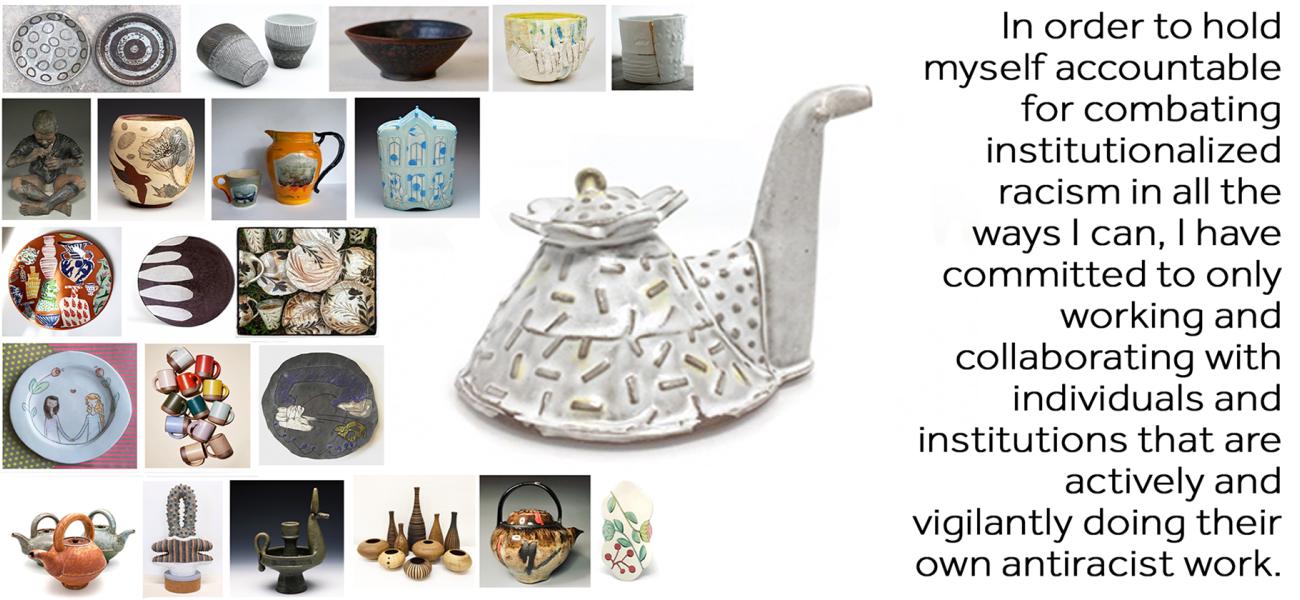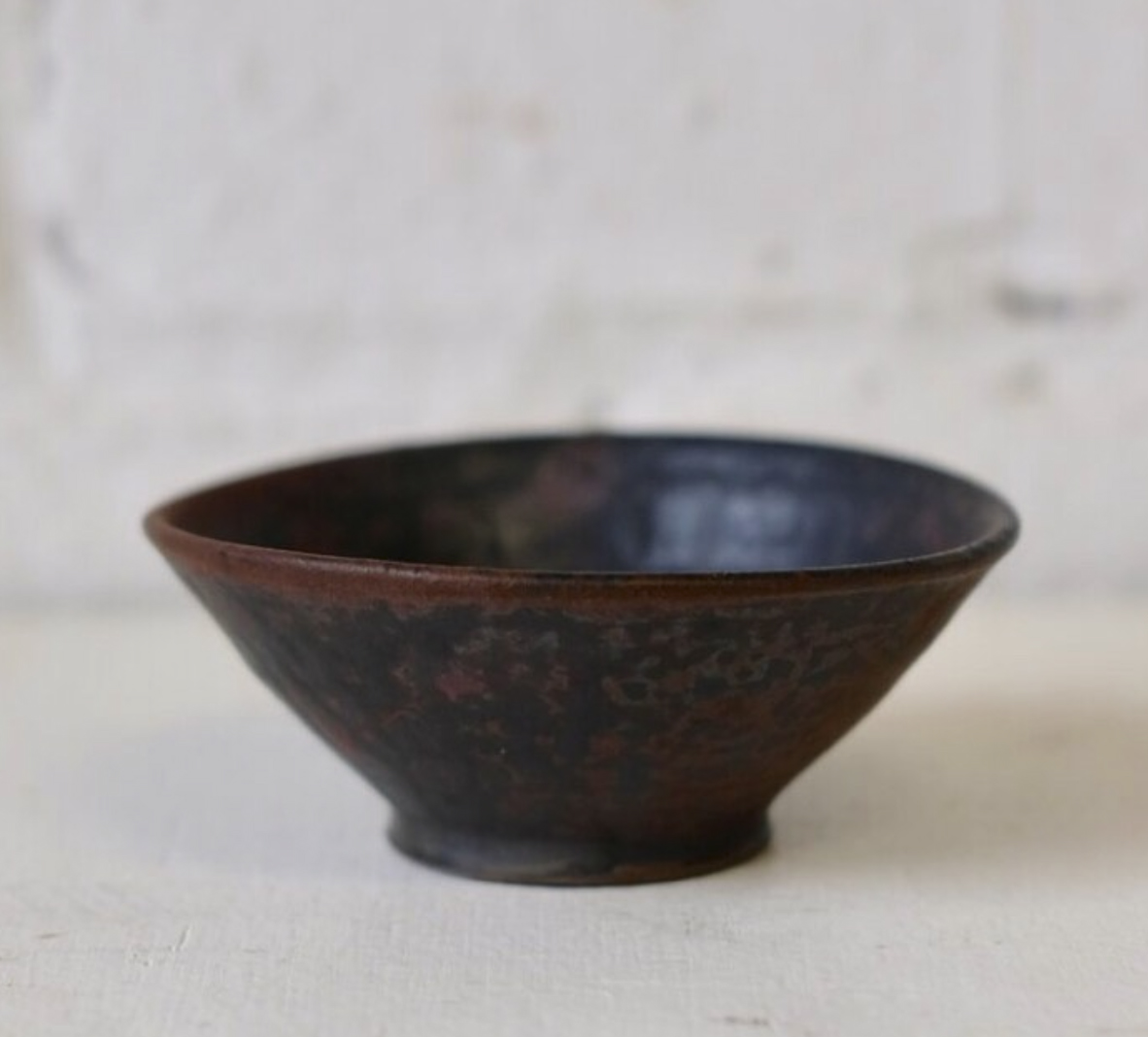In Order to Hold Ourselves Accountable
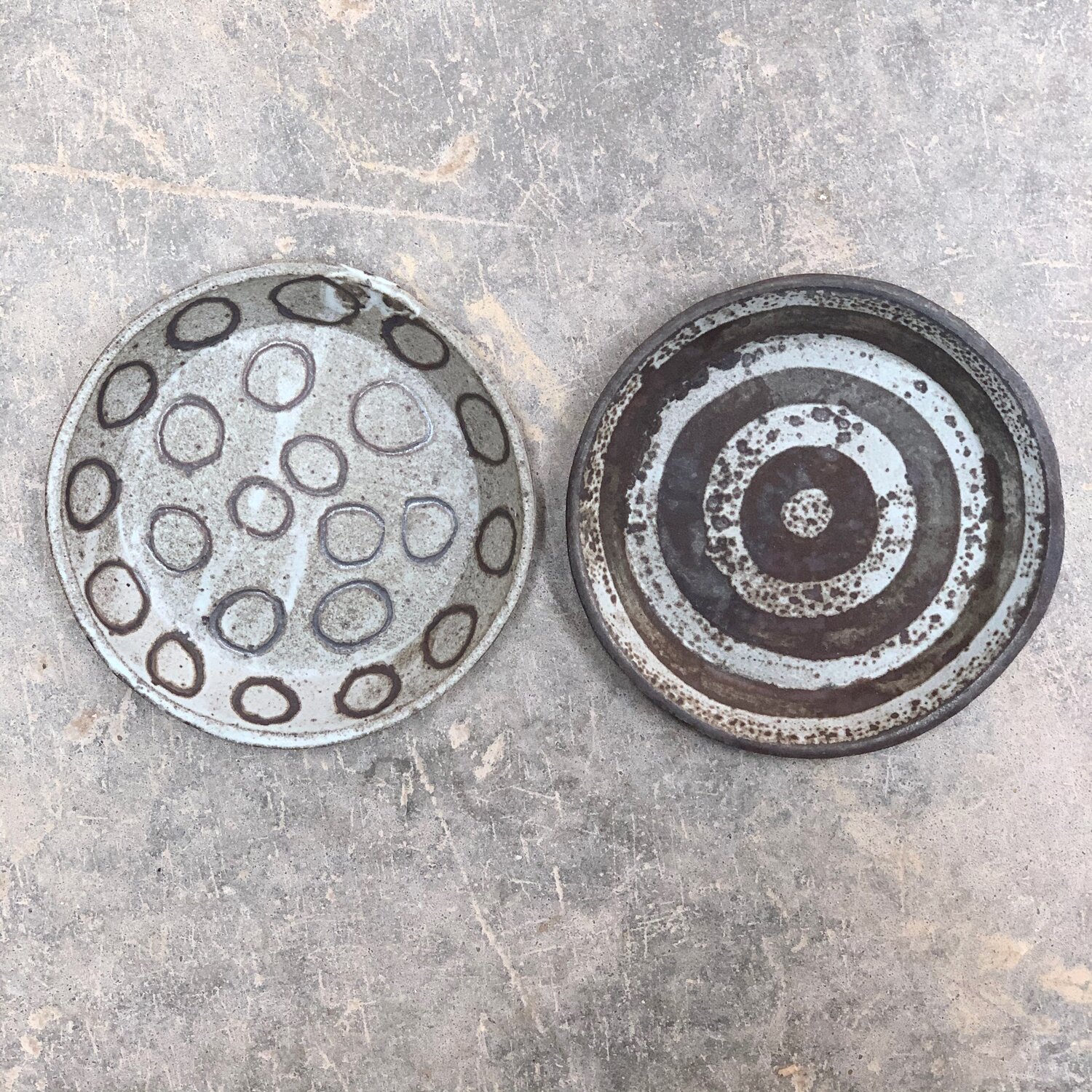
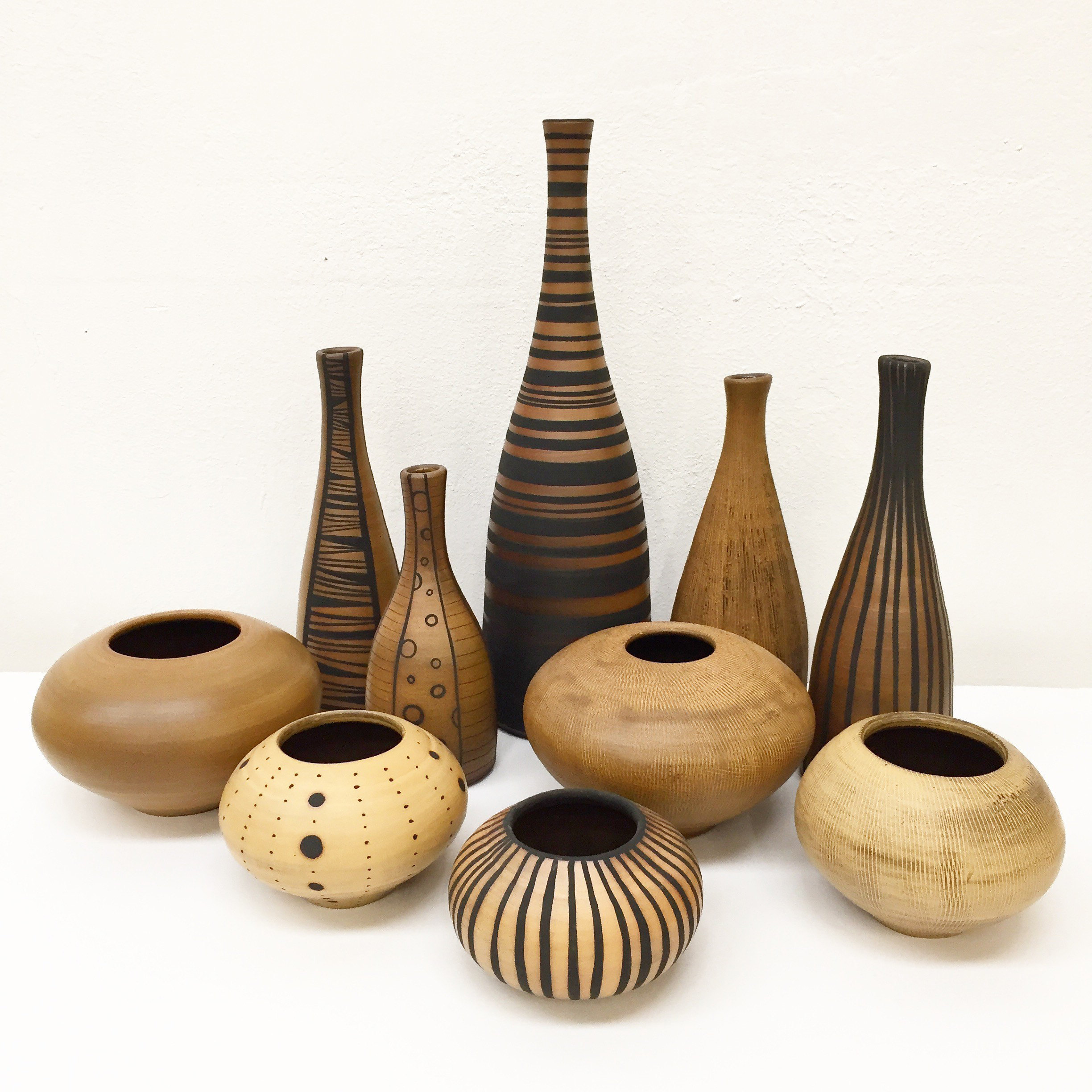 From there, potters from around the country started to raise their hands that they would stand behind this initiative. Weiss never wanted to be the sole author of the letter. She invited anyone who was interested to chime in about what the content would eventually become. Patty Bilbro, Danielle Carelock, and Namita Gupta Wiggers were instrumental voices in the drafting. Weiss connected Studio Potter to Carelock, who saw the post on Instragram and reached out to Weiss because, “This work is incredibly important and I am happy to have been a part of it.”
From there, potters from around the country started to raise their hands that they would stand behind this initiative. Weiss never wanted to be the sole author of the letter. She invited anyone who was interested to chime in about what the content would eventually become. Patty Bilbro, Danielle Carelock, and Namita Gupta Wiggers were instrumental voices in the drafting. Weiss connected Studio Potter to Carelock, who saw the post on Instragram and reached out to Weiss because, “This work is incredibly important and I am happy to have been a part of it.”
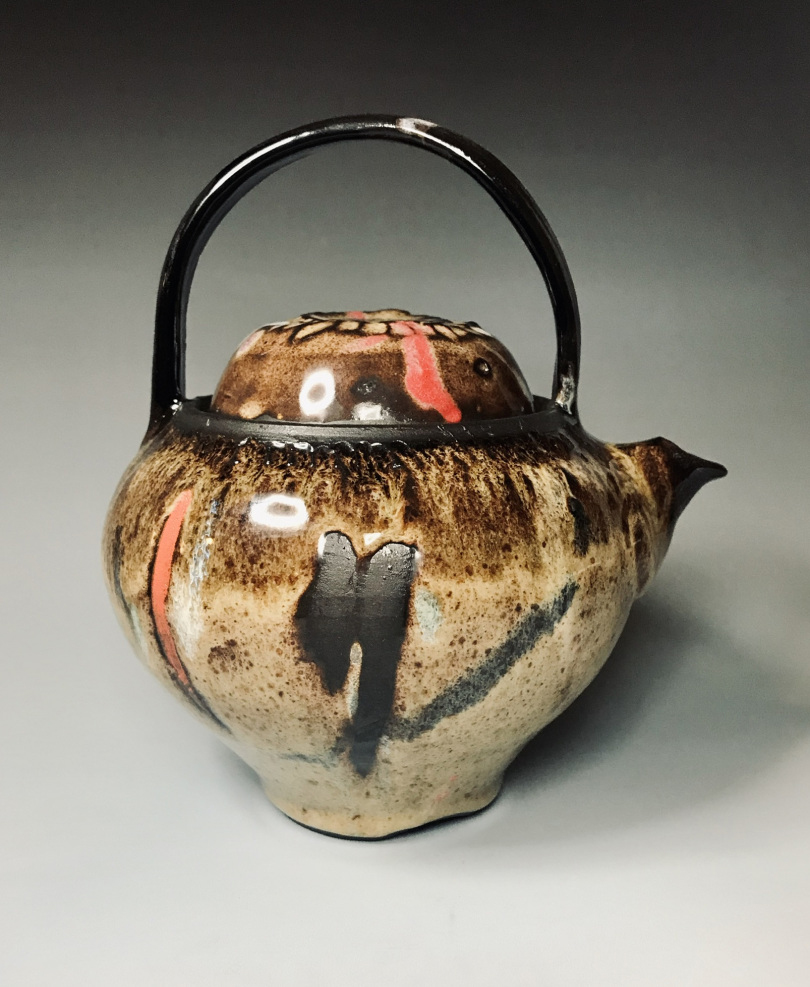 Studio Potter reached out to talk to Weiss and Carelock individually about the collaborative letter, past experiences, the importance of collective buy-in, personal and organizational accountability, and the difficulty one can encounter in negotiating new terms with an existing infrastructure. What follows is our conversation, a copy of the letter, and the ever-growing list of signatures. Potters who are interested in adding their name to the list or adopting the LETTER for future negotiations with institutions regarding teaching or exhibitions, are invited to download a copy and are free to modify it as needed for their particular situations. In our conversation Weiss was very clear that this is a living document and it is not a panacea for all societal ills. If you are interested in adding your name to the signature list, you can do so HERE. Studio Potter will follow up on this conversation next month in an interview with past and present representatives from organizations in the field of ceramics to discuss what actions have already been in play prior to recent events, how they are increasing antiracist policies, and navigating the costs and benefits of call-out culture.
Studio Potter reached out to talk to Weiss and Carelock individually about the collaborative letter, past experiences, the importance of collective buy-in, personal and organizational accountability, and the difficulty one can encounter in negotiating new terms with an existing infrastructure. What follows is our conversation, a copy of the letter, and the ever-growing list of signatures. Potters who are interested in adding their name to the list or adopting the LETTER for future negotiations with institutions regarding teaching or exhibitions, are invited to download a copy and are free to modify it as needed for their particular situations. In our conversation Weiss was very clear that this is a living document and it is not a panacea for all societal ills. If you are interested in adding your name to the signature list, you can do so HERE. Studio Potter will follow up on this conversation next month in an interview with past and present representatives from organizations in the field of ceramics to discuss what actions have already been in play prior to recent events, how they are increasing antiracist policies, and navigating the costs and benefits of call-out culture.
Studio Potter: What made you decide to write the letter and what effect do you hope it has in the long run?
Melissa Weiss: Well, I have been thinking about this for a long time. Every time I have taught a workshop, it has really disturbed me that I am not only teaching to an almost totally White student body, but that I’m also one of the all-White teachers on the roster. It has always bothered me, but I often felt like – (A) This messed up system isn’t going to change if I take a stand alone. It will just mean that I’m not teaching any more, but all these other White teachers will still teach and nothing will happen. And (B) I’m always “the bitch.” I’m always the one saying, “You can’t do that.” At least in the ceramics community I often feel like I’m always the one being the problem or difficult. I think as a woman, too, you always have this insecure feeling. You don’t want to be the one that’s always mad, always difficult. The one who can’t ever be satisfied. Unfortunately, I have let those feelings keep me from speaking out at times. Ultimately, it’s because I, like most people, have been complicit in the system. I didn’t do enough to change and I’m not doing that anymore. I don’t want the teaching jobs if it means being complicit.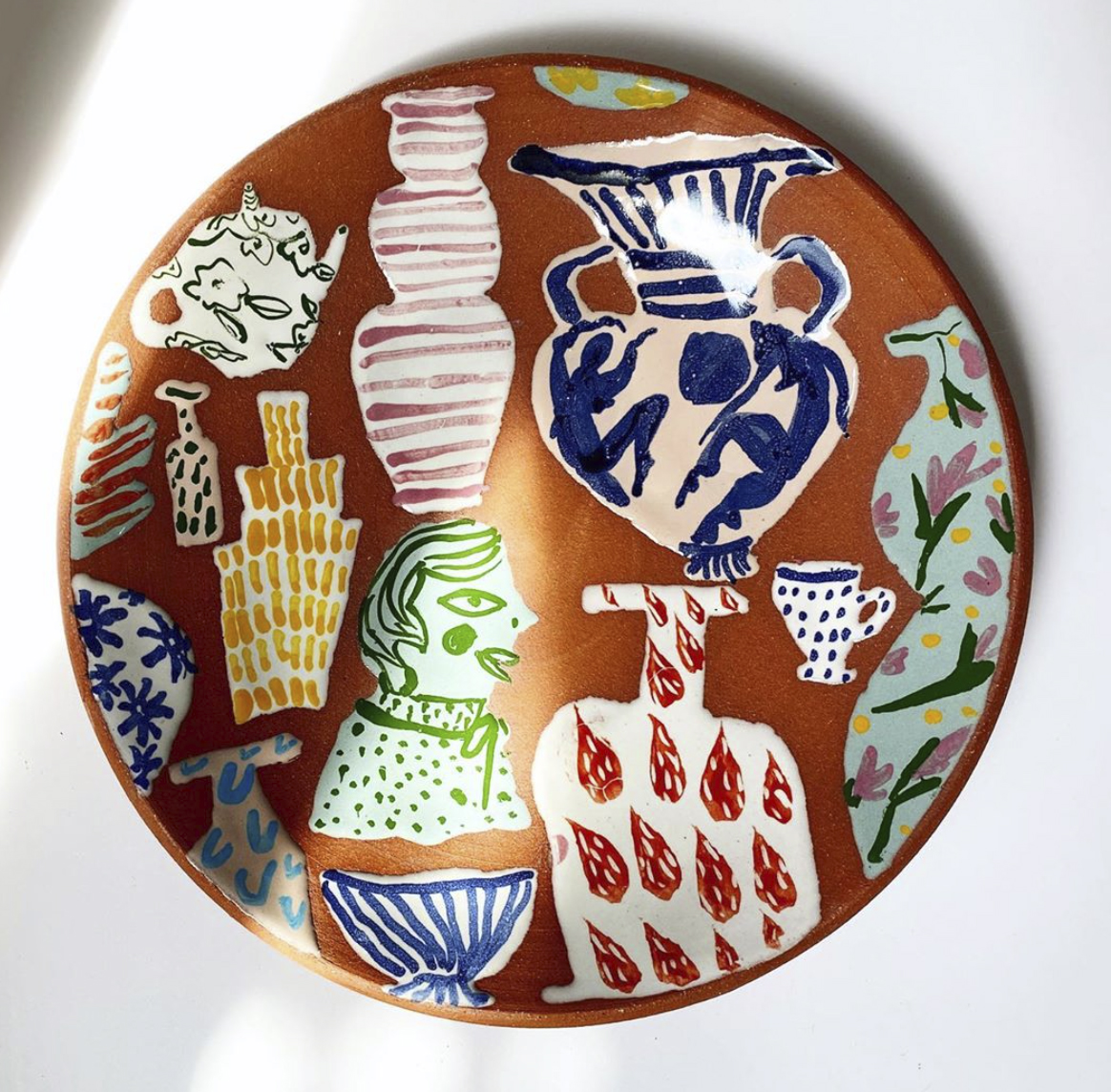
SP: How are institutions receiving the letter? Have you shared it in a professional negotiation yet?
MW: I sent the letter to two places already. One place immediately responded that they appreciated the letter, they were working on some of these things, [and] they needed some time to answer all the questions. So that was great. The other one has sent no response.
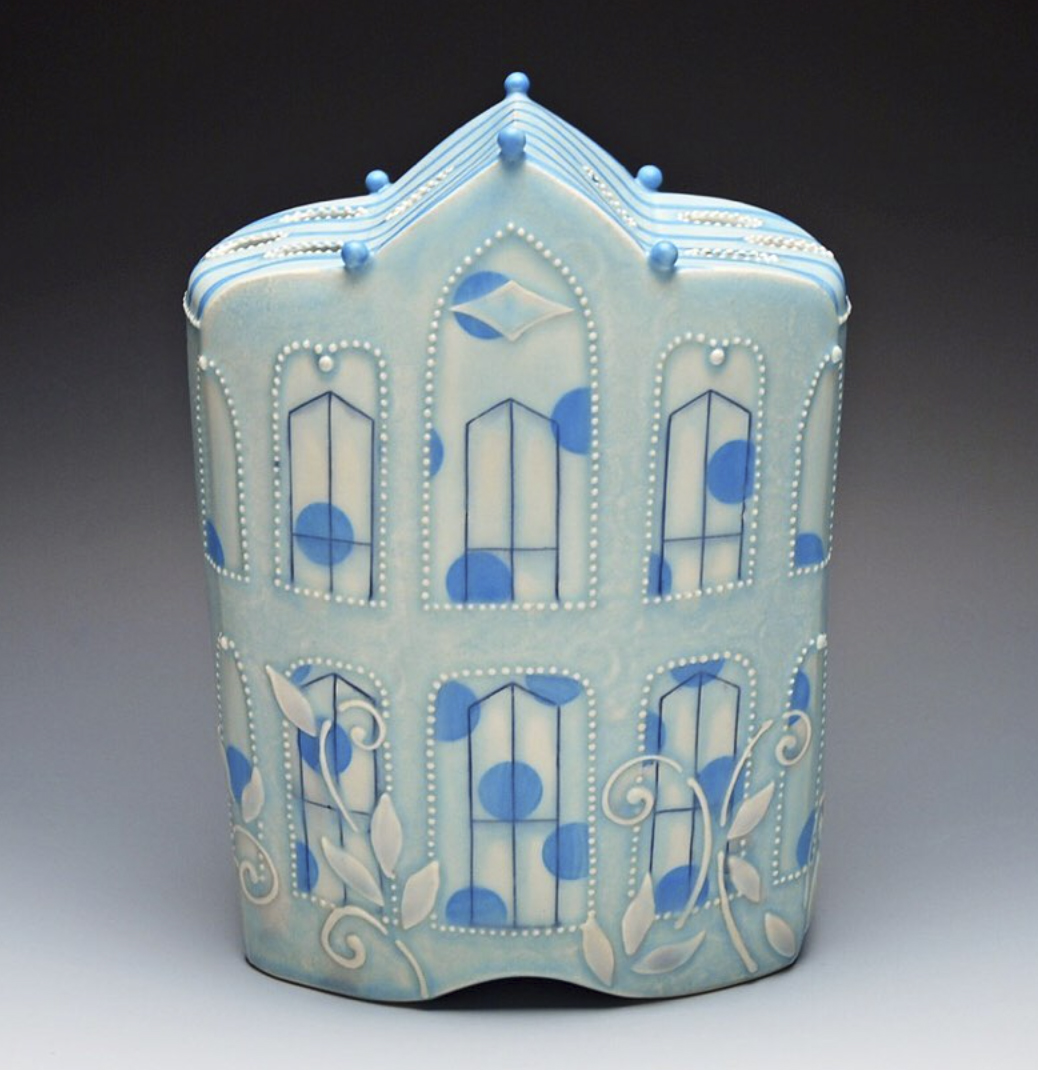
MW: I did not write this letter alone. I had help and that’s what I wanted. I wanted it to be a collective effort because it would have more impact and also because if we all want this to change, we can’t just say we want it. We have to do it. The other reason I wanted input and have it be a collaborative effort is that I’m not qualified to write something that everybody is going to agree with, so I was hoping that we could all provide our input as a collective group. We should all be happy with it. Right now, not that many people have signed, but the list is growing.
[Since our interview more signatures have been added. The list continues to grow.]
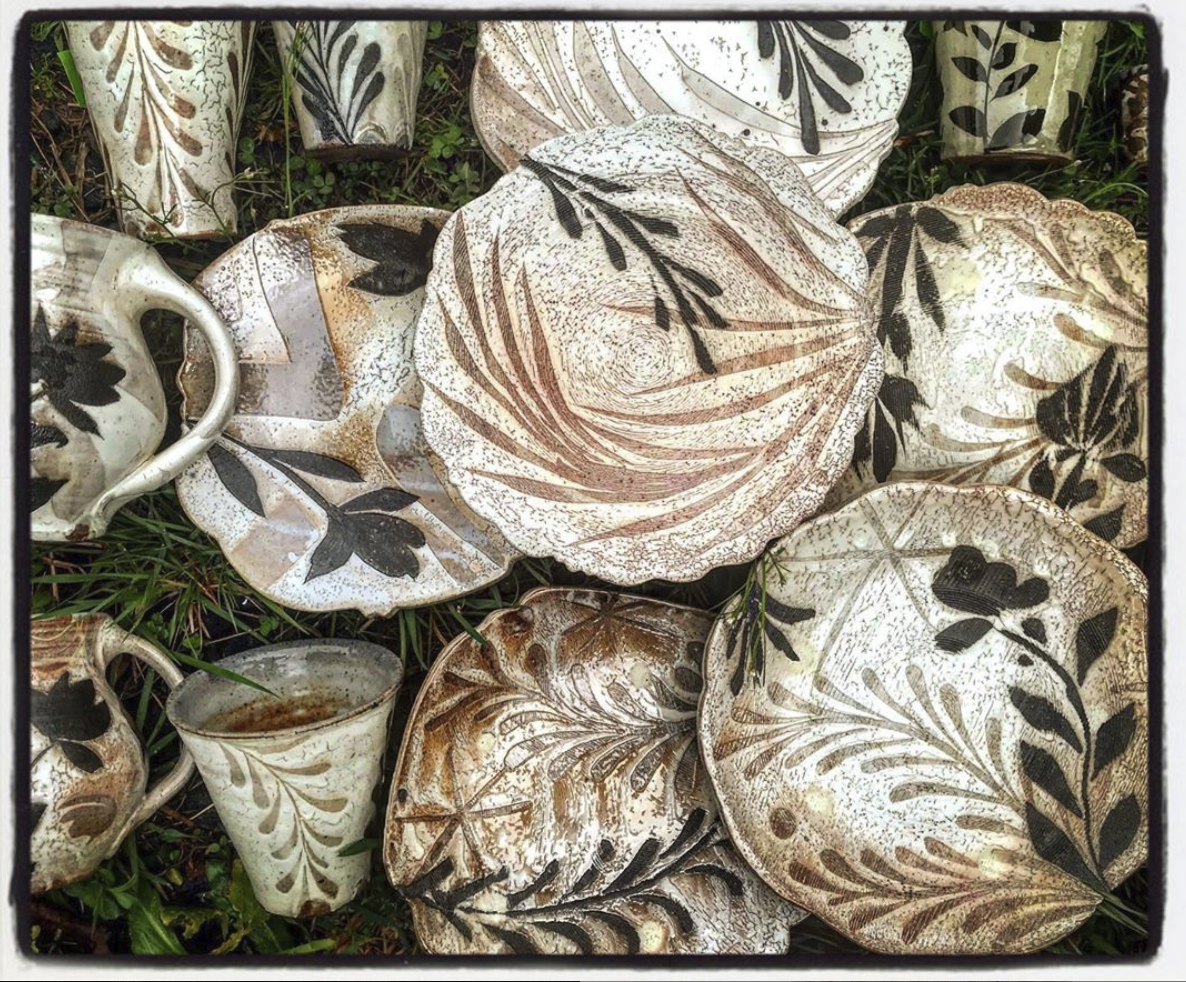
MW: I don’t know. It seems like that’s the whole problem we’re trying to address. By “you” getting these opportunities, other people aren’t. I might not get teaching jobs in the future like I have in the past, but I don’t want them if [by accepting them] I’m still complicit in this system. I have hopes that more people will sign the letter.
Something I noticed long ago is that the ceramics community is a very nice community that doesn’t want to have strong opinions, or rock the boat, or say anything that’s maybe divisive. It’s always bothered me, and now – I shouldn’t be that surprised there aren’t more people signing the letter.
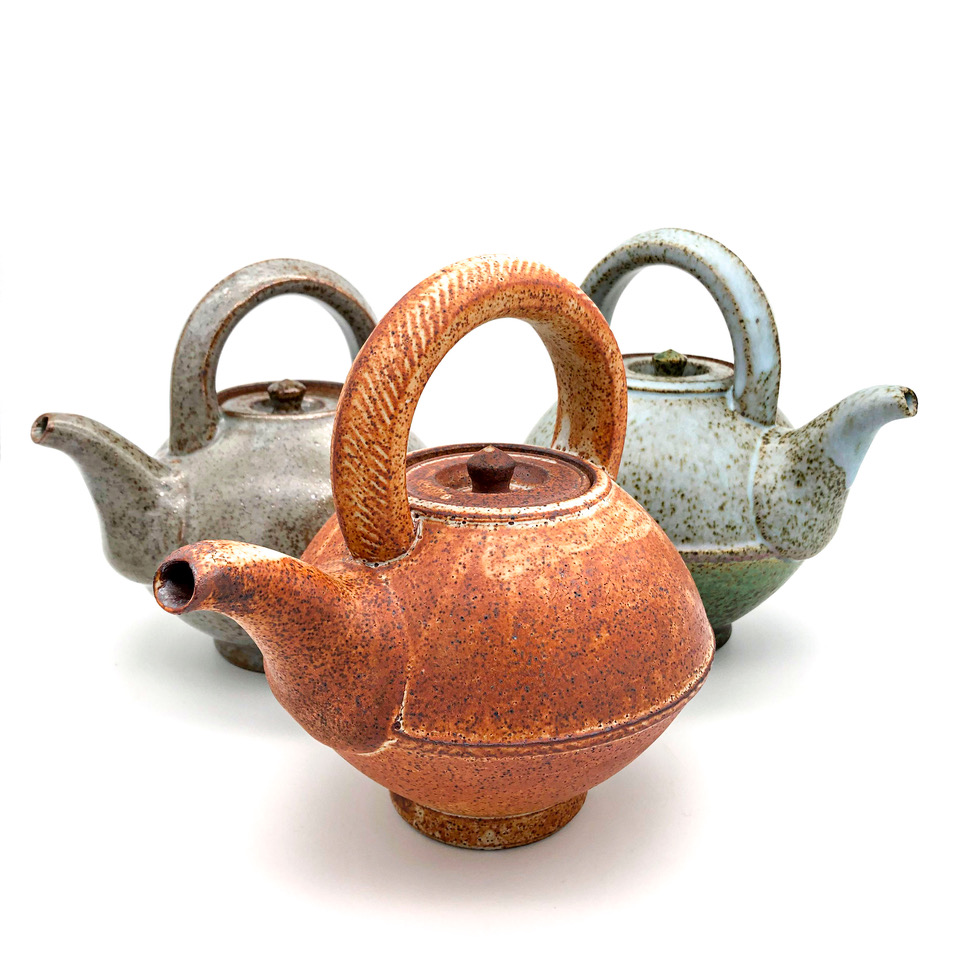
MW: Yes! I think there are a lot of people who don’t want to be complicit in this anymore. A lot. I think out of those people, some are more publicly vocal, and some don’t know what to say. People get scared of saying the wrong thing, or some people… You know, I don’t really shy away from confrontation, but I think a lot of people do. A lot of people aren’t comfortable with it. It’s not that I like confrontation; I just think
it’s necessary. Still, I do think there are a lot of people out there who want to stand by it. A lot of people expressed interest, but I don’t know if they haven’t signed because they just haven’t had time or if they have a problem with the content. Really just a few people helped write the letter, but I do think there are more who don’t want things to continue as they have been but are waiting to see what works. People will stand behind good things. I think most potters want racial equity.
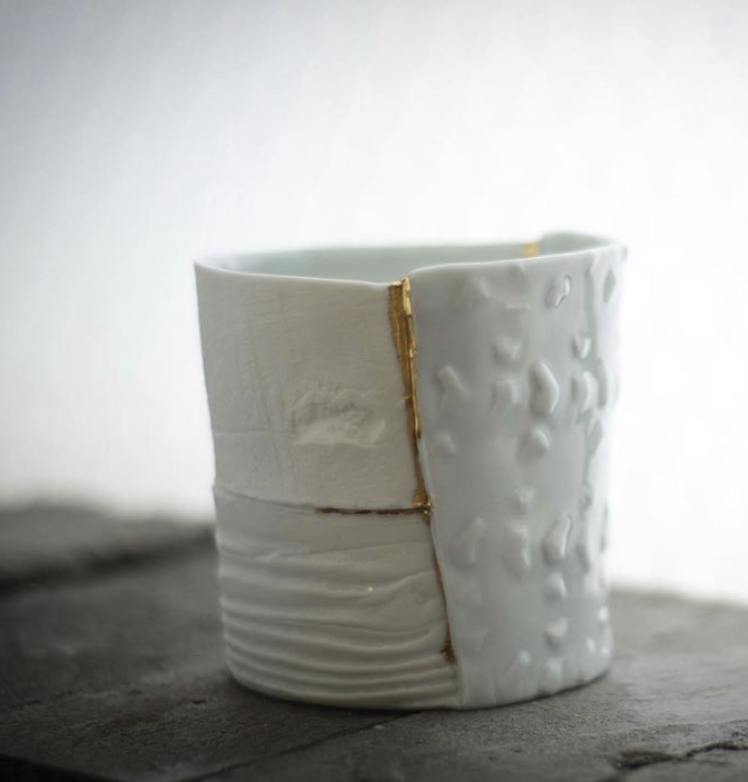
MW: I think sending out this letter is an example. I already had contracts in place for 2020, but the workshops were cancelled. I had to resign contracts for 2021, so I decided to address the situation. I think immediate action is needed. No more hoping things will change, doing the tiniest bit, and thinking that’s enough. We have to get one-hundred-percent on board or it’s just not going to change. I mean, a handful of us aren’t going to be able to do it by ourselves. Nobody is going to give a shit if I say, “You have to answer these questions and they have to be satisfactory answers or I’m not going to teach there.” You know? They’ll say, “Fine. Don’t teach here. I’ll move along to the other hundred people I have on my list.” It’s not like I’m someone special that has all this leverage. It’s why I was hoping for the letter to be like a petition. Like anything, if it’s going to be effective, it has to be collective action – the majority of us. If they can’t get me to teach, that’s one thing. If they also can’t get a hundred other teachers, then they are going to have to shift. You hope people aren’t forced to do these things. They should just want to do them. And I’m not saying that is what is going to happen, but I do think this is a more effective way to go about it.
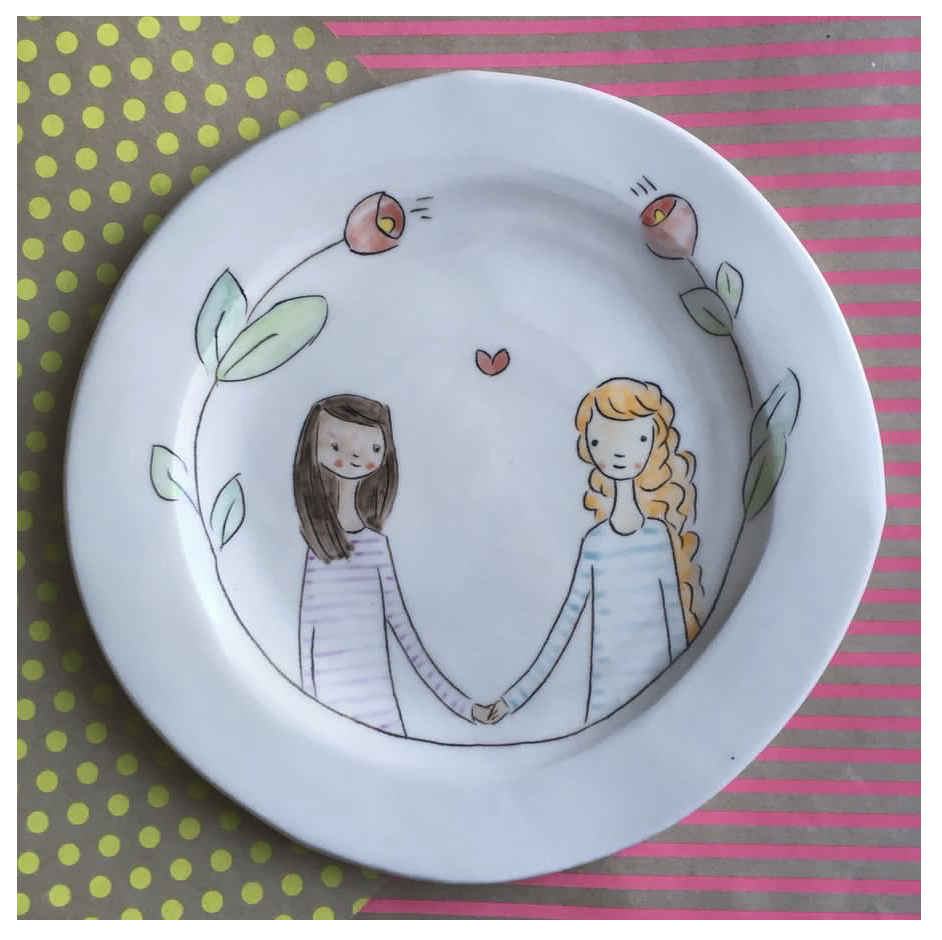
MW: Yes, people have expressed to me, “I’m not a teacher, but a student, and I want these schools to be held accountable for these things or I don’t want to go there.” As I said, I’m not really shy, especially on my Instagram feed, but it’s a tricky balance. You want people to be aware of what’s happening, but this isn’t a game of shaming people. I don’t know if an organization who doesn’t reply to the letter just doesn’t want to answer the questions, if they don’t want to deal with this right now, I don’t know the back story. So then, what do I do? Do I tell people? That seems…
I don’t really know. I don’t know how much honesty should come forth there. I don’t know what will be beneficial. You want everyone to be doing these things because they want racial equity, because it’s how we should be. Not because they are shamed into it. So, I don’t really know what to do with the results. If an institution won’t reply, rather than any one artist outing their inaction – it seems to me, if people [potential students] are doing their own investigation, it’s going to be obvious if you look at the teaching roster: Who is there? Who is being invited to teach there? If you show up at a class, who’s attending?
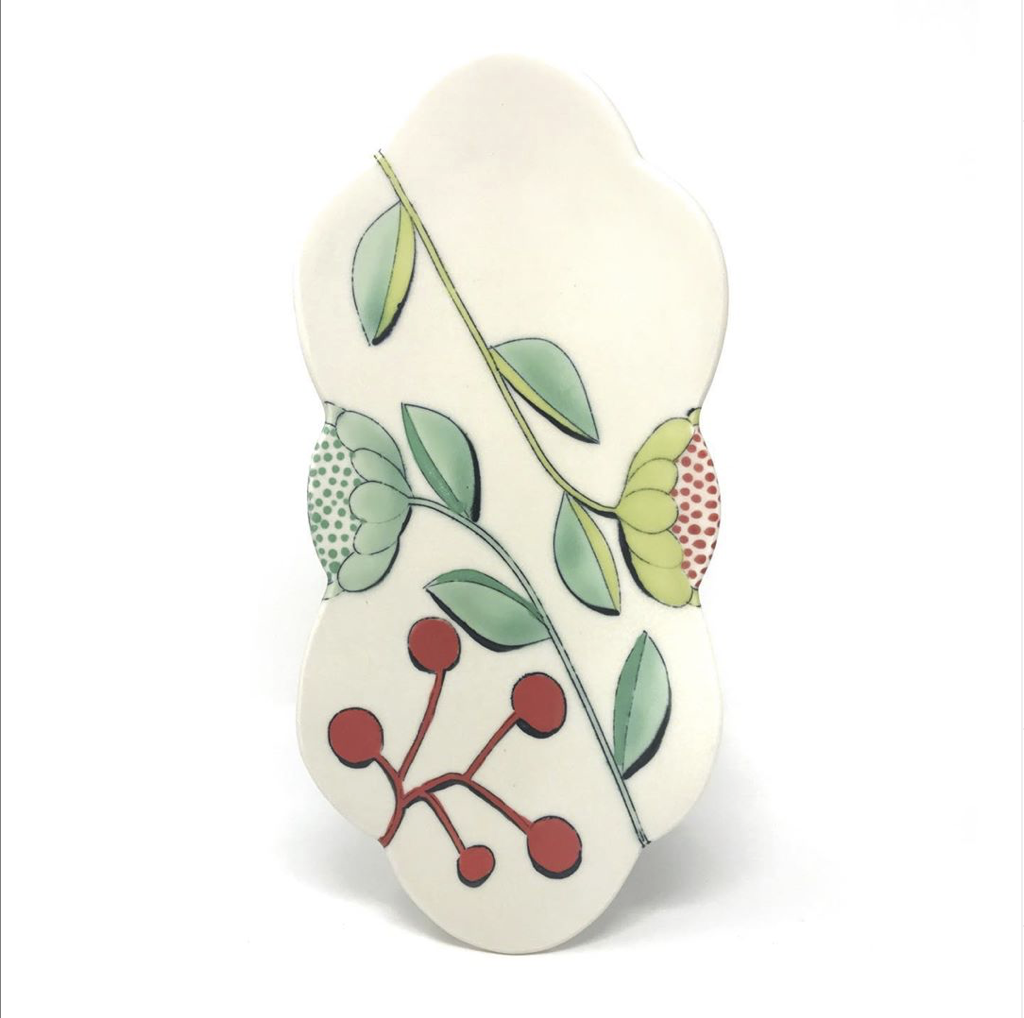
MW: Yes, I am. You don’t want it to be some kind of a name game, but when you are talking to places about teachers, you hope to get people that are in the top echelons. Right now we have a handful of those, but there is also a conspicuous absence of many. But I don’t know why. I am curious though. “Are you still planning on teaching at places and not holding them accountable?” But am I really going to do that with every person?
SP: Yes, is this your new mission?
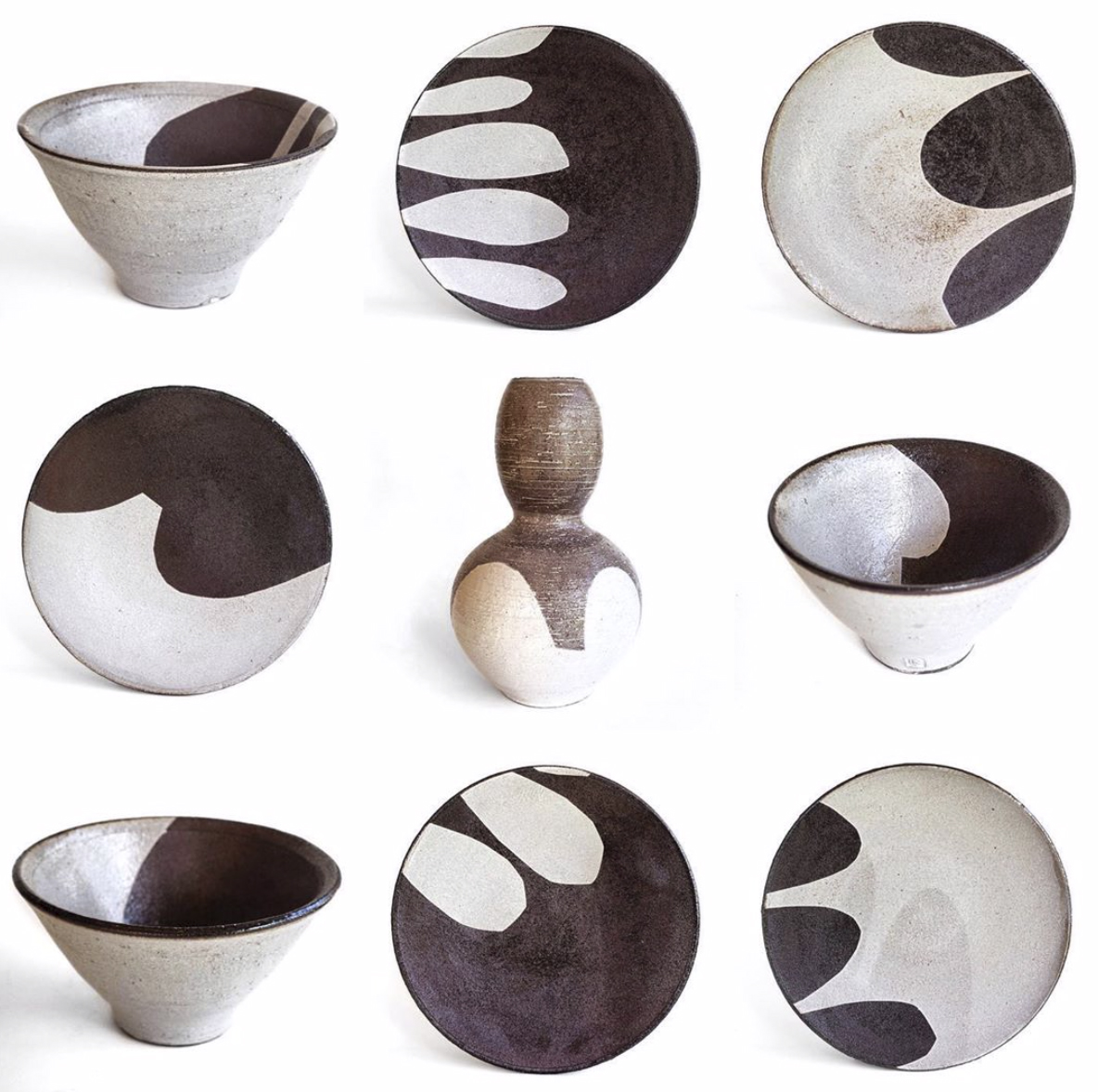
SP: So how do you feel about people who are frozen in place? It seems like even well-intentioned action can get push-back right now. You found an action you could make and call others to, even if the end game isn’t totally clear. What would you say to someone who doesn’t even know where to begin?
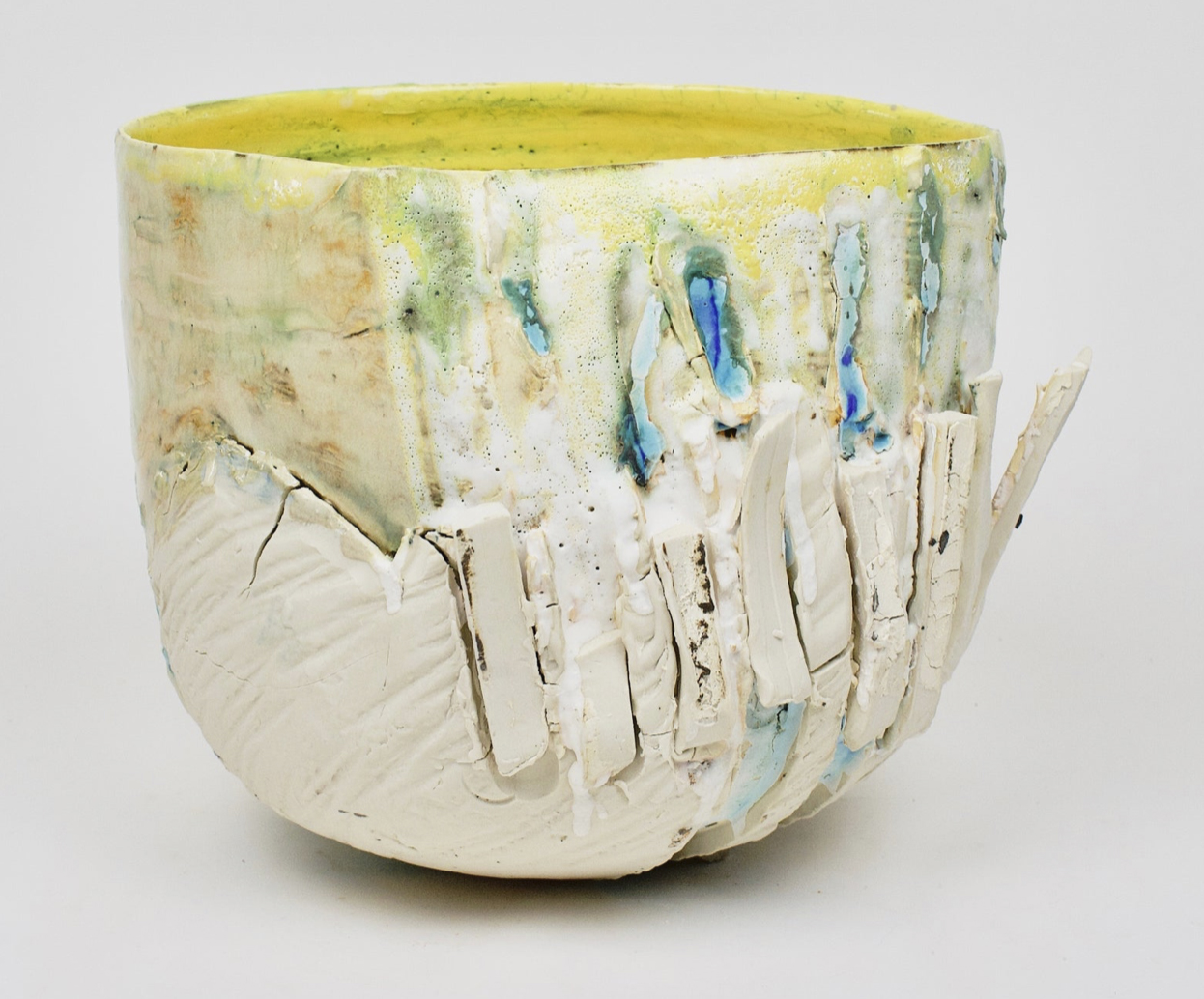 MW: We all know now. There are no excuses. Everybody should know that we all [White people] benefit from the systems in place. And even if you don’t have actively racist thoughts, the actions, the things you do are racist, because it’s an entire system. I don’t think we get to play ignorant or get off the hook anymore. If you aren’t doing anything, you are part of the problem. And we’re all part of this problem! But if you’re not doing anything, then you’re not trying to get on the other side of it. Unfortunately, even if people do say something publicly, many just hope this is all going to blow over. Especially on social media where we already see posts returning to pretty pots or exhibition announcements.
MW: We all know now. There are no excuses. Everybody should know that we all [White people] benefit from the systems in place. And even if you don’t have actively racist thoughts, the actions, the things you do are racist, because it’s an entire system. I don’t think we get to play ignorant or get off the hook anymore. If you aren’t doing anything, you are part of the problem. And we’re all part of this problem! But if you’re not doing anything, then you’re not trying to get on the other side of it. Unfortunately, even if people do say something publicly, many just hope this is all going to blow over. Especially on social media where we already see posts returning to pretty pots or exhibition announcements.
We all just saw the contagion of momentum in the past weeks when, someone who has never said anything controversial on Instagram, maybe put a black square or said something, because everybody else was doing it, so it felt OK. But I feel like we’ve just come full-circle in two weeks and now it’s just, “OK, are we back to normal yet?” And that’s a problem. This is not meant to go away. We’re not meant to move on from this. We’re meant to maybe inconvenience ourselves, maybe not have the same life we had before, because now we know we have to do better.
This letter is meant to go to shows too. I do the St. Croix [Valley] Pottery Tour and I saw a promotion from the organizers last week about 2021. I have a really good relationship with my host [Matt Krousey] and he is an amazing person, so I immediately wrote him, “If the Tour is going to look like it always does, I can’t do it next year.” That’s not something I’m doing because it’s no big deal. St. Croix is a huge show! But I’m not going to do it if it’s all of us White people again.
SP: What did he say?
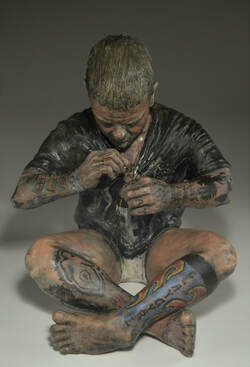
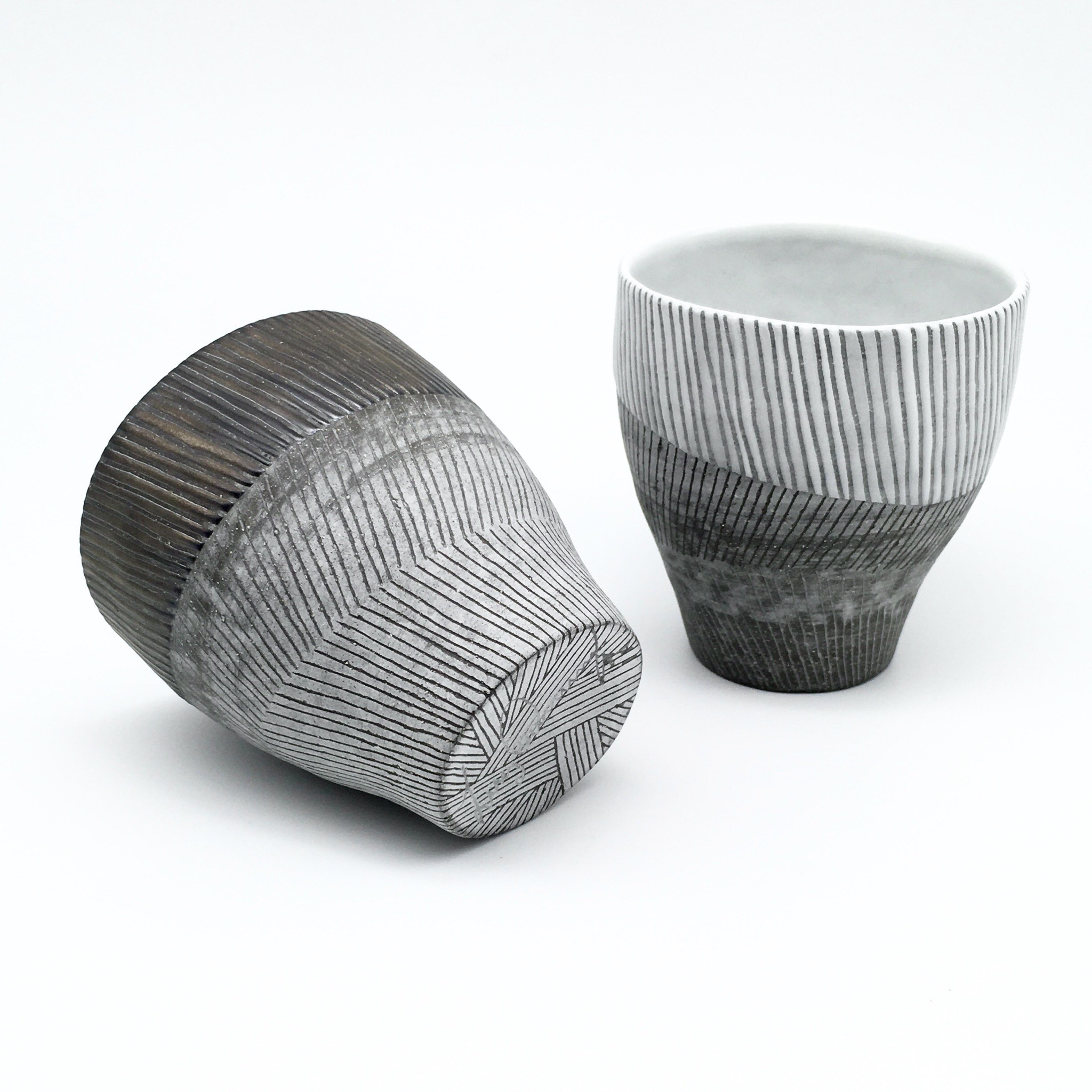
institutions? Do you have empathy for the slowness of larger operations?
MW: I don’t know if empathy is the right word. People [in organizations] should have been doing all of this already, is the thing. This isn’t a new issue. I do recognize that in an institution it’s a huge logistic endeavor if you haven’t done enough – I wouldn’t want that job. But if you don’t make that an immediate priority…
Look at what we all just had to do to navigate COVID-19. If anybody would have told NCECA, “You’re going to have to cancel your show,” they would have said, “That’s impossible. That’s never happened.” We are adaptable! We can do things when we have to. But this isn’t an issue we have to address, because as White people, and most of these places are White run, they don’t have to do anything. They aren’t the folk dealing with the racism. They can say things to make themselves feel better, but if they don’t enact change, nothing will be different for them. That’s why I think, if we band together and limit their options by boycotting, then they will have to do something. You would hope it wouldn’t take that, but it might because, logistically, it’s hard. You have to prioritize your resources, possibly redirecting them from other projects.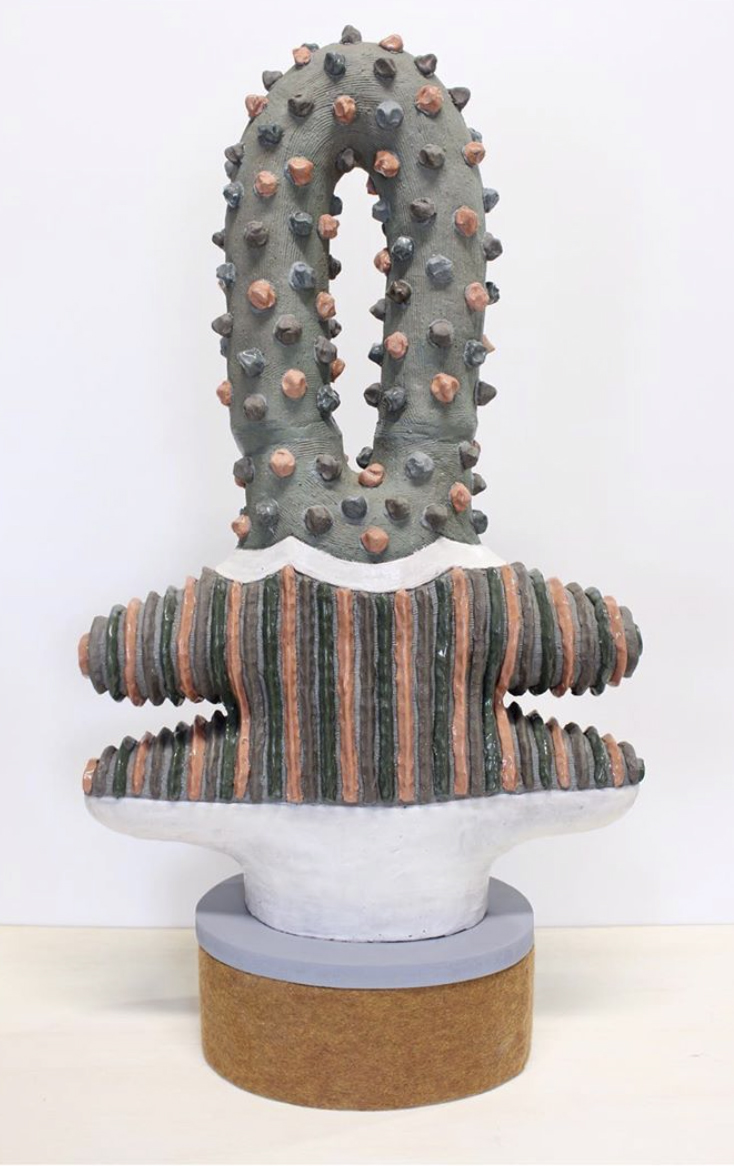
This moment feels forceful. It feels like you can’t ignore it anymore. And yet, we already are [ignoring it].
SP: Can you speak to your experience negotiating as an artist with institutions in the past, to secure other terms?
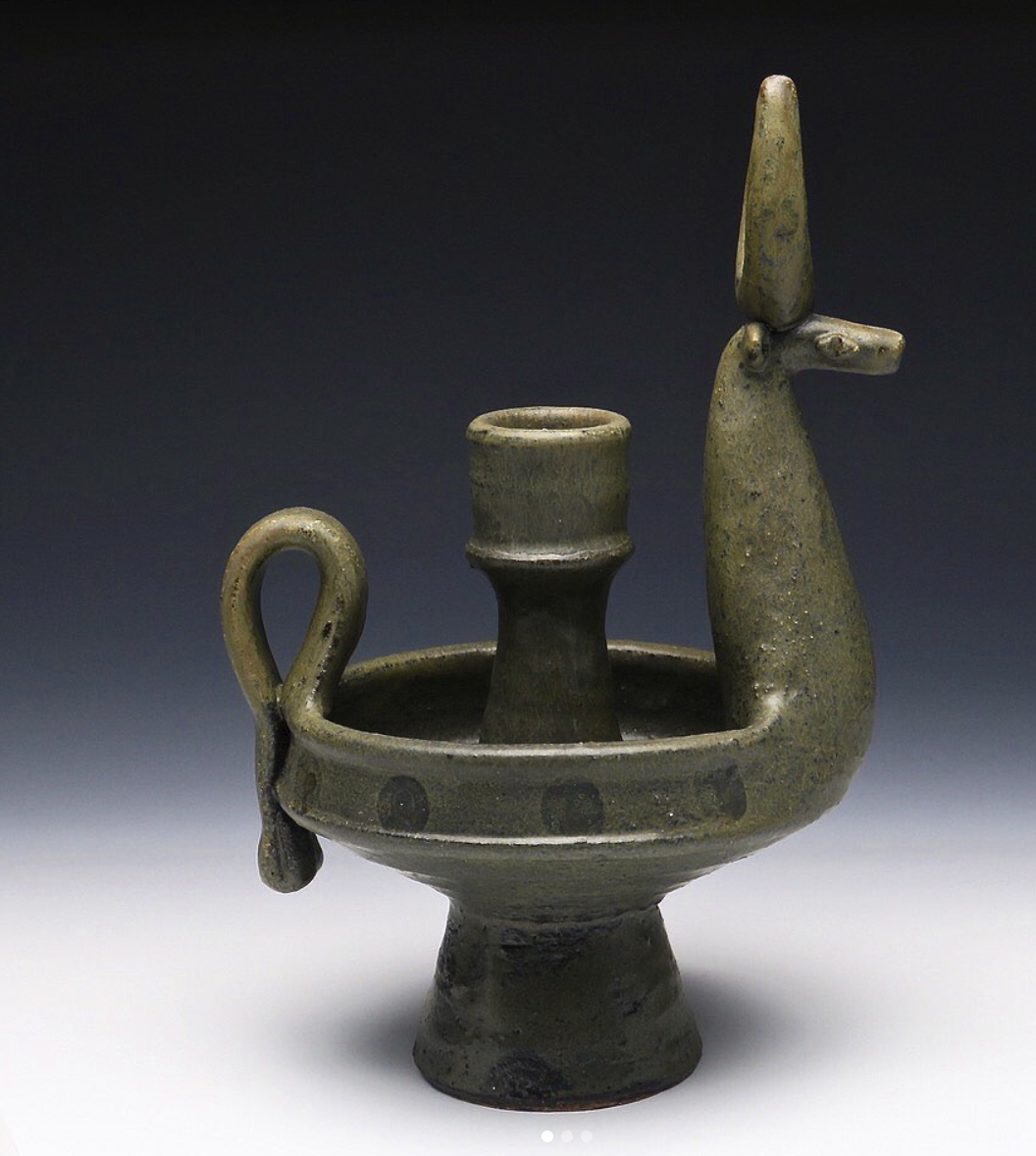
SP: And did you negotiate with them?

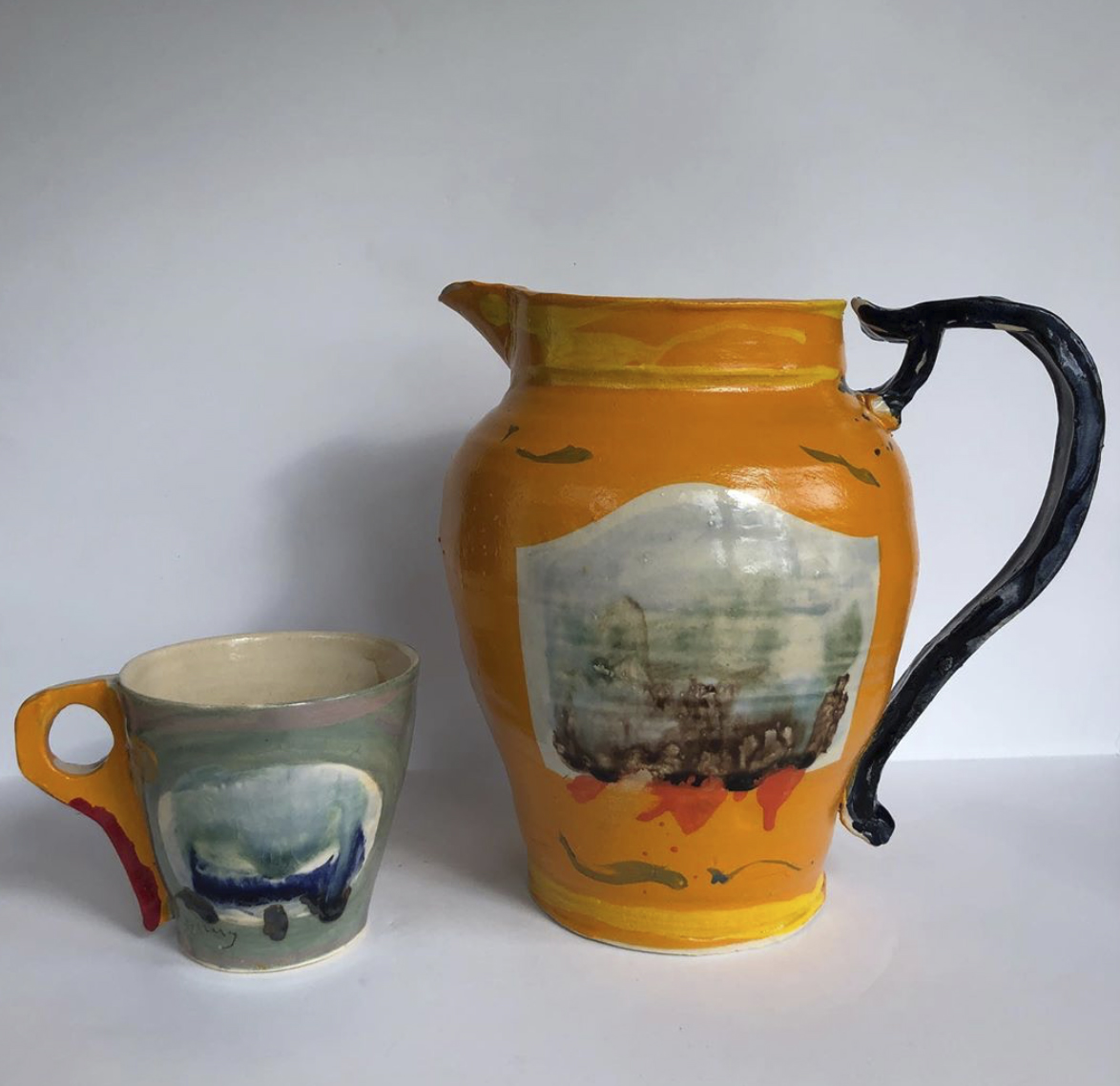
SP: This could be perceived as very one-dimensional. Do you have space for people, for organizations who are still grappling with these issues?
MW: I have space for people who are grappling with things, but not this. How, at this point in time, when you have the same accessibility to information that I do now – information is everywhere. I didn’t grow up in a bastion of politically enlightened people. Luckily, I found punk rock when I was really young. It was a culture where people were talking about all these issues. So, that was the road I took and stayed on. But I’m not special; I just try to seek out information. I want to be a better human and learn about things, and if people are still saying, “All lives matter,” with everything that is going on – they’re just willfully ignorant or racist and I don’t have patience for that.
At the conclusion of our conversation, Weiss felt it was important for Studio Potter to connect with the one artist of color who reached out and participated in crafting the language of the letter. As mentioned above, that artist is Danielle Carelock, a full-time potter in Charlotte, North Carolina, who graduated with a BFA from the University of North Carolina, Greensboro. The following is Studio Potter's conversation with Carelock, wherein she generously shared personal experiences, highlighting why she felt compelled to contribute to the collaborative drafting of the letter.
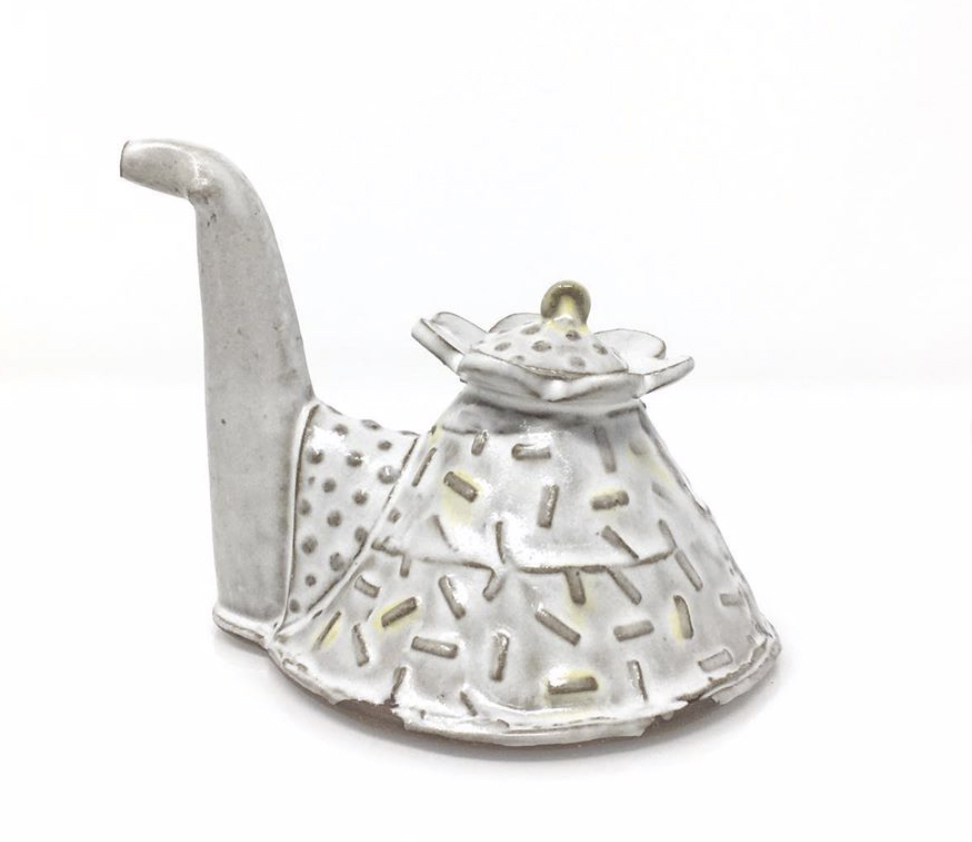
Danielle Carelock: For four years I have been a potter. I was hooked after one class at UNCG. The class happened at the same time I was dealing with my mom’s death and the wheel helped me cope. From there I was just engaged with the material, I came in every day, weekends too. After school I did a residency in 2017 at Salem Artworks and it was one of the best experiences I have had.
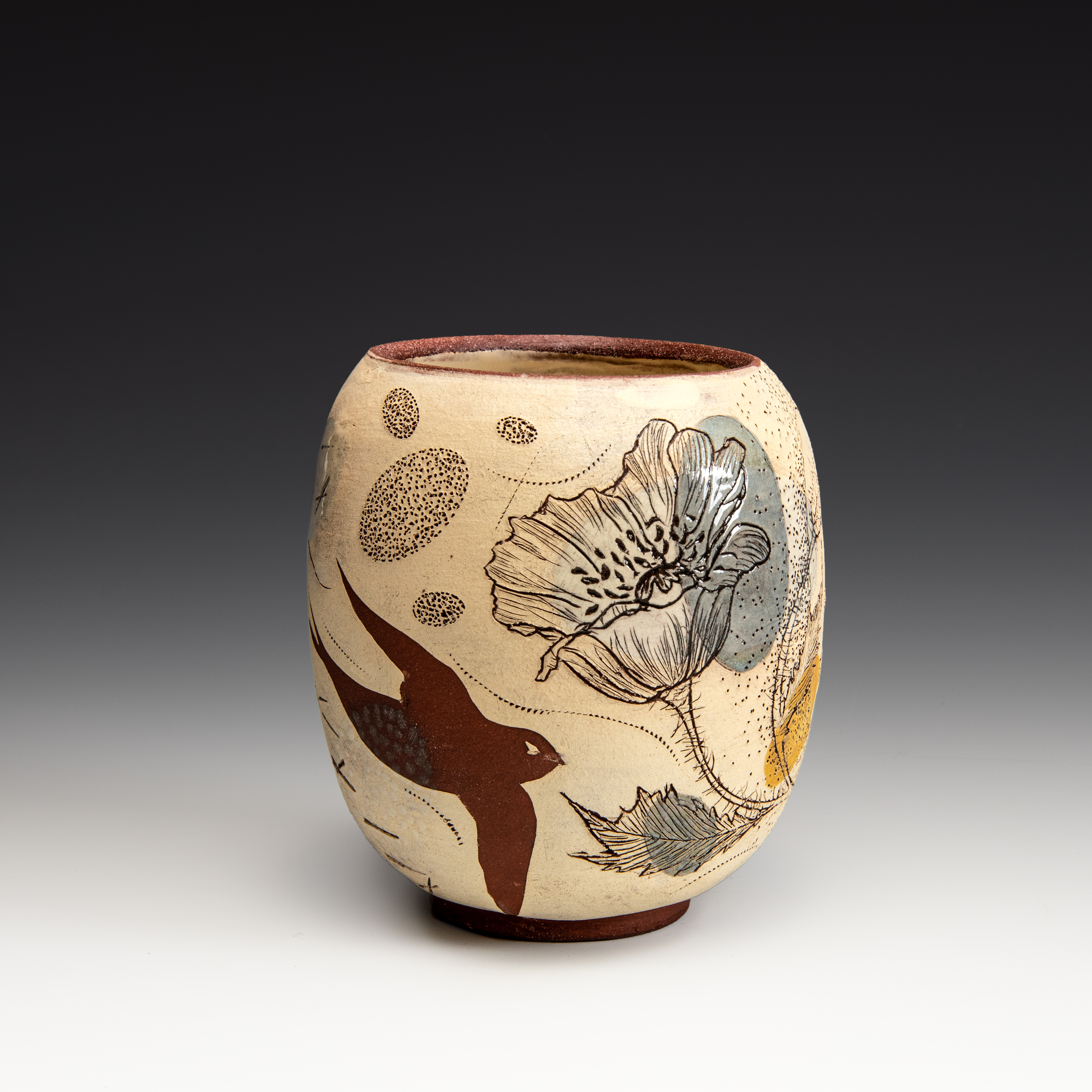
DC: I follow Melissa on Instagram and was totally on board with the idea because I have experienced systemic racism in ceramic institutions. I have lost opportunities and I am interested in helping to make a change in the ceramic community and the community I’m in.
SP: Are you willing to share specifics about the kind of systemic racism you encountered?
DC: Of course. I was working at an organization and starting to become a part of the community on a deep level. I felt comfortable in the atmosphere and I cared about its future success. I started speaking out to my supervisor, not only about how the studio could be improved in regards to health and organization, but also about micro-agressions, which were mostly covert, subtle racism. I felt I could trust my superiors and that I had a good relationship with them. However, sometimes there was just a feeling that people didn’t think I knew what I was doing or that I wasn’t trusted. Other times I would overhear off-color remarks about other people of color in the studio from these same people that I had trusted. My concern about those remarks resulted in what I thought was a heart-to-heart conversation with my supervisor, but afterward there was a growing distance between us. Unfortunately, my age and gender only made my experience that much more challenging.
SP: Did anything change?
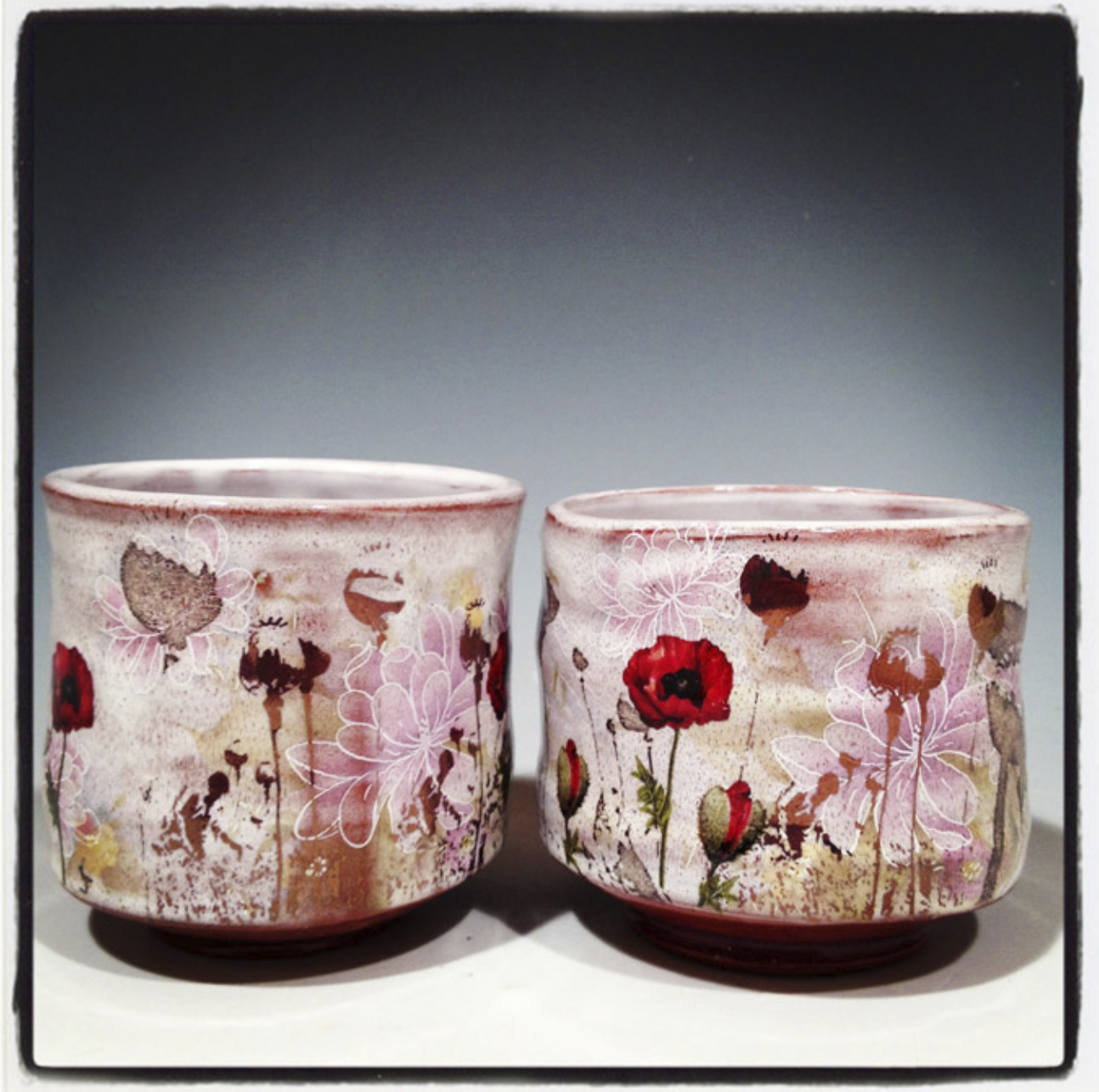
I had shared when I felt I was in a safe space. The blurring of professional and personal relationships allowed them to gaslight me. I left our conversation feeling like I needed to apologize for what I was feeling, that it was all in my head. I couldn’t understand why space was made for my White colleague to feel sensitive, but I wasn’t given that same space. I was told that if I wasn’t happy there, I could leave because there are ‘plenty of people who want the job.’ And when a White male who had become my friend was hired, he came in and made the same suggestions I’d made about health and organization. Immediate action was taken. At another center I was working at a big event, I was just doing my job and listening to music and there were weird, uncomfortable comments made about the music I was listening to. At this same event one White woman walked up to me and mentioned I was the first Black person she’s seen (I was in rural North Carolina). She proceeded to tell me how she felt prejudice at her job for two years, and went on to defend the confederate flag. People would also ask me about my hair or touch my hair without my consent. Those things may seem harmless but they aren’t. There are more examples, but mostly they are what some may identify as covert and you can’t prove they happened. It makes you feel crazy. You have to be very conscious of – on top of doing your job well – being super nice and calm. You have to make other people feel comfortable even if that means you aren’t.
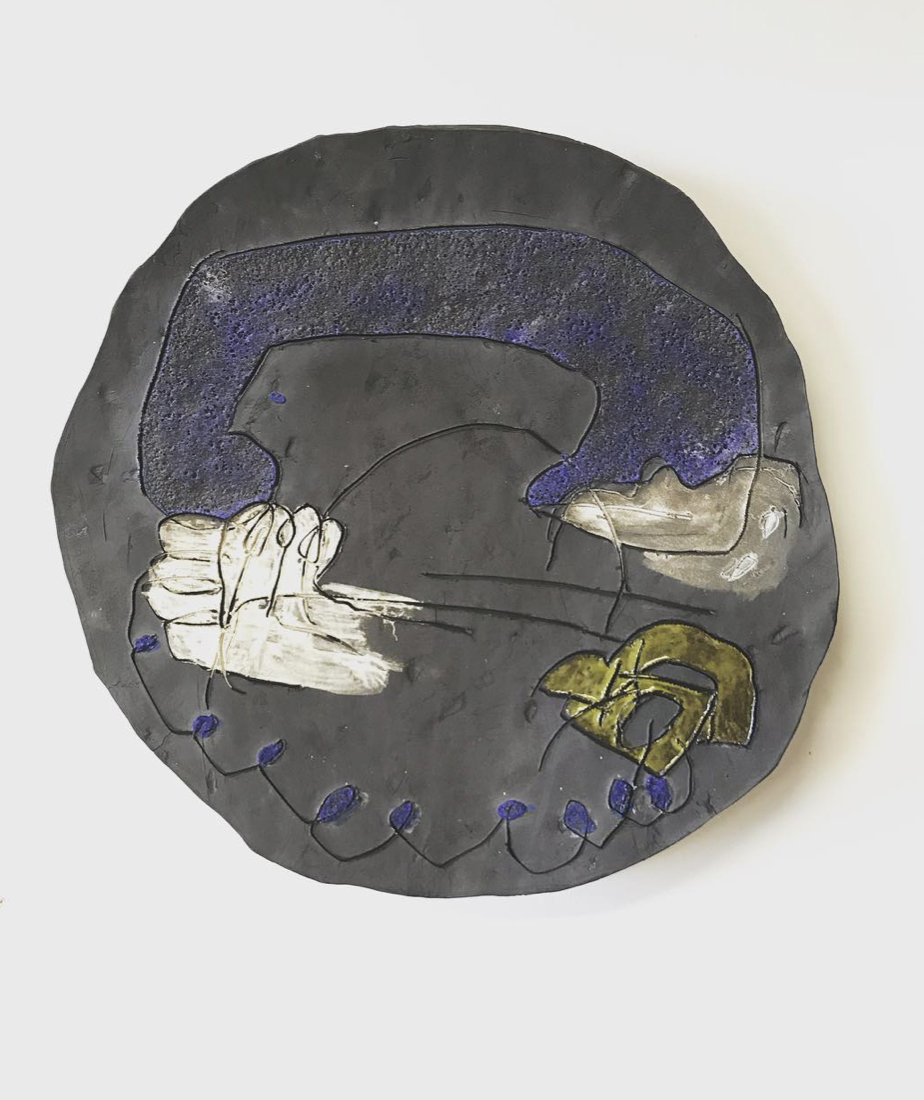
DC: I care about the ceramic community and I’ve learned a lot from workshops I’ve attended. I would like to see more BIPOC artists in those workshops and teaching them. I’ve suggested some people who would be good to present workshops. North Carolina is very traditional, I mean this specifically about pottery. When I have made suggestions in the past, I get feedback that is affirming, but nothing happens. I feel like I want to say, “Though his contributions are important and shouldn’t be erased, why are we continuing to push David Drake, known as Dave the Slave, when there are other, living BIPOC artists we could be supporting and learning from?”
SP: To wrap up, will you share with us a little about your studio practice, Danielle Carelock Studio, and the current initative you have underway?
DC: We are a women-of-color-owned ceramic art business, operating out of a home-studio building located in the heart of Charlotte, North Carolina. The studio focuses primarily on ceramic home goods and bringing ceramic workshops to the members of our community. In May of 2020 we began a SLIDING-SCALE PAYMENT SYSTEM for BIPOC, queer, and disabled FOLX who would like to purchase ceramic work or take advantage of workshop offerings but are unable to afford full price. In order to apply, those interested need to email hello2daniellecarelock.com and ask about the sliding scale discount. If anyone wants to support this initiative, helping those with less financial freedom and opportunity, DONATIONS are welcome and the support is deeply appreciated.

The content of the letter is shared below.
Dear__________,
Thank you so much for the invitation to teach at your establishment.
I take many things into account when deciding whether to accept a teaching invitation, as I want the experience to be the best possible for everyone involved. A central part of my decision-making process is making sure that the groups I partner with are actively committed to uprooting racism and all forms of oppression within their institutions. In order to hold myself accountable for combating institutionalized racism in all the ways I can, I have committed to only working and collaborating with individuals and institutions that are actively and vigilantly doing their own antiracist work. To uphold that commitment, I respond to all inbound teaching requests with this letter to better understand if and how your institution is committed to antiracist action and policy.
Please respond to the following as honestly and earnestly as you can:
*Do you have people of color on your administrative staff, your independent contracting staff, and in your student body? Specifically, how many are in decision-making ranks?
*What percentage of visiting artists that you invite to teach at this institution are BIPOC?
*Are you networking, collaborating, and cooperating with BIPOC-led institutions to develop a consciously antiracist organizational culture that also addresses internal bias?
*Do you provide regular training and discussions at the student, faculty, staff, and board level about dismantling racism? Do you include antiracist education as part of your orientation process for students, faculty, staff, and board members?
*What does eliminating barriers to full participation in your program look like? (i.e. racism, homophobia, sexism, ableism, ageism, and so forth.) How are you creating spaces so that marginalized individuals can create freely while feeling both seen and heard in your institution?
*When the instance arises that someone from your staff, student body, or so forth reports that they have experienced prejudice in your facility, how will you address this without bias or retribution? What systems do you have in place to resolve this?
It is my duty as an artist to ensure that I am not continuing to perpetuate or benefit from any systemic bias or prejudice that excludes and creates barriers for marginalized groups while also benefiting from their contributions to art. What training do you have for me as a guest/visiting artist to learn, be reminded of, have tools to examine my own bias?
Sincerely,
____________________________________________

